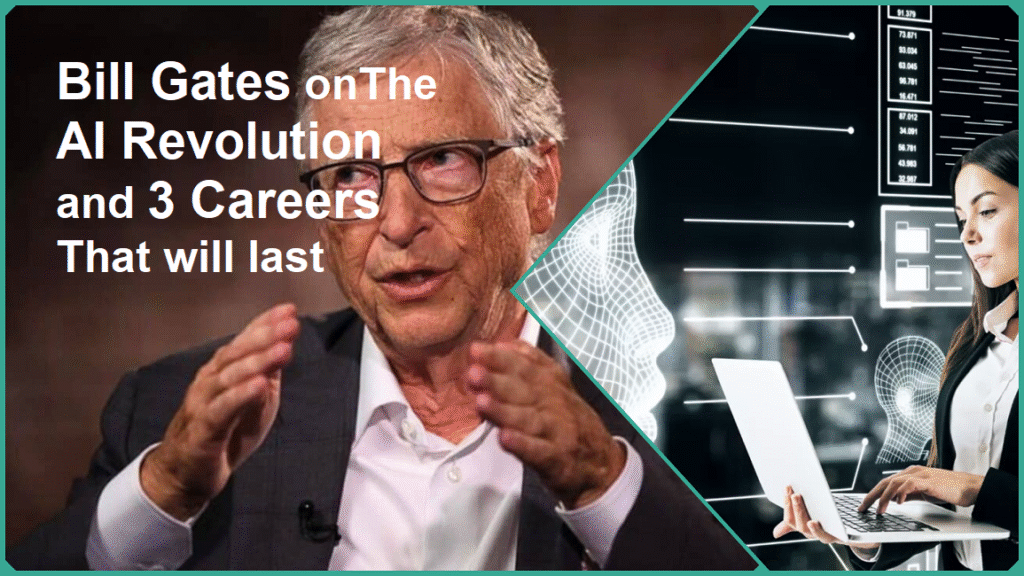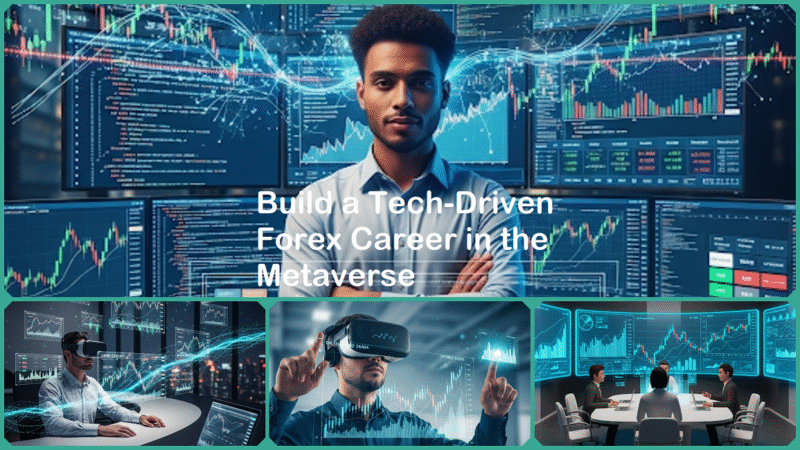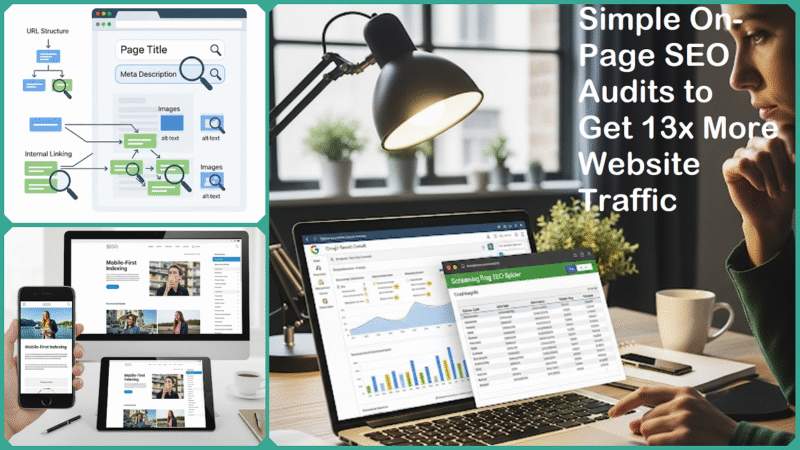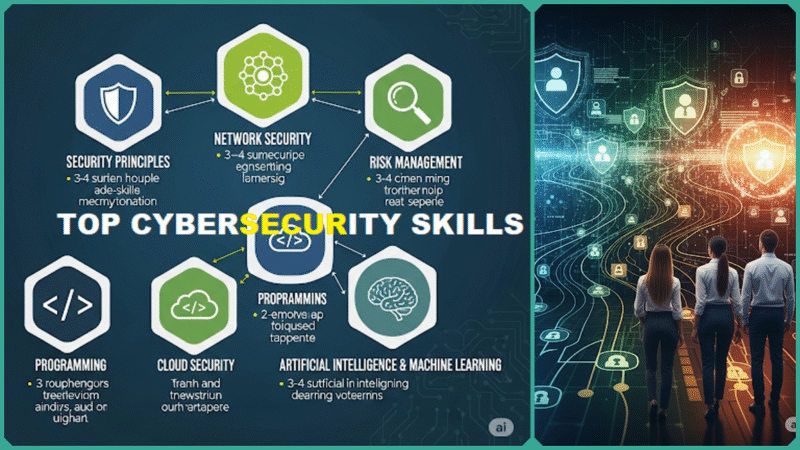Bill Gates on the AI Revolution and 3 Careers that will Last
Estimated reading time: 22 minutes
The world stands at a crossroads as the AI Revolution rapidly transforms nearly every sector of society. Artificial Intelligence, once a distant dream, now permeates daily life, reshaping how we learn, work, communicate, and do business. Few voices have as much influence or insight into this revolution as Bill Gates, the legendary co-founder of Microsoft and renowned philanthropist.
Gates’s views carry significant weight and influence, not just for tech enthusiasts and hobbyists, but also for a wide range of professionals, students, educators, entrepreneurs, and anyone deeply concerned about the longevity and sustainability of their career in an age marked by rapid and stunning technological change and innovation.

This post explores Gates’s candid thoughts on how AI will upend the workforce and, crucially, which careers he predicts will endure even as machines grow ever more capable. If you’re worried about the future, navigating a career change, considering how to upskill, or advising the next generation, the answers below could provide both direction and reassurance.
Understanding the AI Revolution
The AI Revolution refers to the incredibly rapid and profoundly transformative development of artificial intelligence technologies, which are fundamentally reshaping and changing the way we live our daily lives, work in various industries, and interact with the world around us.
This ongoing revolution extends far beyond previous major technological shifts, such as the Industrial Revolution or the Digital Revolution, because AI possesses the unique potential to influence and impact virtually every field, sector, and human activity across the globe.
Key Features of the AI Revolution:
- Omni-Directional Impact: Unlike previous revolutions that concentrated primarily on a single dominant domain, such as agriculture, industry, or computers, AI’s influence is truly “omni-directional.” It is fundamentally reshaping and transforming virtually every sector across the global landscape—from healthcare and transportation to education, finance, logistics, art, and entertainment—impacting each area in profound and unprecedented ways.
- Rapid Technological Progress: In recent years, we have witnessed exponential and unprecedented advances in various fields such as machine learning, natural language processing (NLP), computer vision, robotics, and complex decision-making systems. Cutting-edge tools and technologies like ChatGPT, DALL·E, autonomous vehicles, and intelligent smart robots represent just the very tip of an enormous and rapidly expanding iceberg of innovation and potential applications across multiple industries and domains.
- Automation of Cognitive and Manual Tasks: Artificial intelligence is increasingly automating a wide range of tasks, encompassing both physical activities and knowledge-based responsibilities. This advancement is transforming how various jobs are performed by handling routine manual labor as well as complex cognitive processes with greater efficiency and accuracy.
- Mundane Tasks: These include activities such as data entry, managing and organizing schedules, and performing repetitive office jobs that require consistent attention and routine handling throughout the workday.
- Complex Tasks: Diagnosing diseases accurately, conducting in-depth legal research, writing and debugging software code, performing detailed financial analysis, creating high-quality content, and many other specialized activities that require expertise and precision.
- Generative AI’s Creative Leap: Unlike earlier forms of automation that primarily focused on repetitive or rule-based tasks, generative AI models have the remarkable ability to create, producing human-like text, highly realistic images, captivating music, or sophisticated computer code. This advancement means that AI is not just assisting but actively augmenting or even replacing certain aspects of human creativity, opening the door to exciting new possibilities and innovations while also bringing about fresh uncertainties and challenges that society must thoughtfully address.
Comparison: Previous Technological Revolutions vs. The AI Revolution
| Revolution | Main Focus | Key Effects |
|---|---|---|
| Agricultural | Farming, food production | Mass food output, settled civilizations |
| Industrial | Manufacturing, mechanization | Urbanization, new jobs, rise of factories |
| Digital (Computer) | Information processing, computing | Global connectivity, knowledge economy |
| AI Revolution | Intelligence, decision-making | Automation of thought, omnidirectional impact |
Why Is the AI Revolution So Significant?
Scale of Disruption: AI’s potential to automate a wide range of jobs, spanning both blue-collar and white-collar sectors, is truly unprecedented in the history of technological advancements. A comprehensive report from the McKinsey Global Institute highlights that as many as 800 million workers around the world could experience significant impacts on their employment due to the rise of AI-powered automation by the year 2030. This massive shift has the potential to transform labor markets and industries on a global scale.
- Cognitive Automation: Artificial intelligence has evolved far beyond merely substituting human physical efforts—it now focuses on automating complex mental processes. Modern AI systems possess the ability to reason through problems, continuously learn from new information, translate multiple languages with high accuracy, interpret and analyze images, make informed business decisions, and even engage in sophisticated, nuanced conversations that resemble human interaction. This advancement marks a significant shift in how machines assist and augment human cognitive functions.
- Acceleration of Change: AI technologies are advancing at an incredibly rapid and exponential pace. What once appeared to be purely science fiction just five years ago has now become widely accessible and integrated into everyday life. Consider the remarkable progress in voice assistants, real-time language translation, and the generation of text and images through AI tools like ChatGPT and Midjourney, which have transformed how we interact with technology in numerous ways.
- Democratization of Expertise: As Bill Gates and numerous other influential thought leaders have frequently pointed out, artificial intelligence is dramatically transforming the way high-level expertise in fields such as medicine, law, engineering, and many others is accessed. This technology is making specialized knowledge and advanced skills available to virtually anyone who has an internet connection, regardless of their geographical location or socio-economic background. By breaking down traditional barriers to expert information, AI holds the potential to significantly level the playing field on a global scale, enabling people from all walks of life to benefit from insights and guidance that were once confined to elite professionals.
Real-World Examples of the AI Revolution
- Healthcare: Artificial intelligence can analyze medical images such as X-rays and MRI scans, as well as complex genomics data, at a much faster rate than human doctors. In many cases, AI systems can even achieve greater accuracy, helping to identify conditions that might be missed by the human eye. This technology plays a crucial role in assisting healthcare professionals by providing valuable insights for diagnostics and enabling the development of personalized treatment plans tailored to each patient’s unique genetic makeup and medical history.
- Finance: AI-driven algorithms are revolutionizing the financial industry by trading stocks with remarkable speed and accuracy, detecting fraudulent activities more efficiently than ever before, and offering highly personalized investment advice tailored to individual client needs and goals.
- Creative Arts: Generative AI models are increasingly being used to write imaginative poems, compose original music tracks, create stunning digital artworks, and even collaborate with humans in co-writing screenplays for movies and television. These advanced AI systems are pushing the boundaries of creativity in the arts.
- Customer Service: Advanced intelligent chatbots are now capable of managing and responding to millions of customer inquiries daily, significantly reducing the reliance on human customer service agents and improving response times.
The AI Revolution is far more than just another fleeting technological trend—it represents a profound and fundamental transformation in the very way intelligence is generated, shared, and utilized across all sectors of society.
Its impact is truly all-encompassing, influencing not only the types of jobs that will be available in the future but also fundamentally altering how we think, create, and approach problem-solving daily.
For professionals, students, business owners, and innovators alike, gaining a deep understanding of these rapidly evolving dynamics is essential for successfully navigating the challenges and opportunities that lie ahead in the coming decades, ensuring they can not only adapt but also thrive in this new era.
Bill Gates’s Perspective on AI and the Future of Work
Bill Gates approaches the AI Revolution with a balanced perspective that blends optimism with caution. As one of the most influential tech visionaries and a globally respected philanthropist, his insights carry significant weight. Gates sees AI as a powerful tool capable of revolutionizing access to knowledge and expertise.
For example, AI-driven platforms could provide people everywhere with instant, affordable, and highly accurate advice in critical fields such as medicine and law—services that have historically required expensive, time-consuming consultations with specialists.
Democratizing Expertise
Gates envisions AI as a democratizing force, opening access to expert-level information that can improve lives and decision-making globally. This has the potential to reduce barriers caused by geography, income, or education levels.
In conversations and writings, he frequently highlights how AI-powered tools could function as “personal tutors, doctors, or legal advisors” accessible to everyone, making expert guidance more universally available than ever before.
The Challenge: Job Disruption at Scale
At the same time, Gates is clear-eyed about the massive disruption AI could bring to the workforce. In interviews and public forums, he has stated that within a decade, AI systems may automate tasks so well that “humans won’t be needed for most things.” This does not mean AI will replace all jobs overnight, but rather that the nature of many roles—especially those involving repetitive or routine cognitive work—will change dramatically or disappear.
He warns that entire professions could be radically transformed or even rendered obsolete as increasingly sophisticated AI handles complex problem-solving, creative tasks, and decision-making with greater speed and accuracy.
Grounded Predictions Backed by Research and Collaboration
Gates’s forecasts are not speculative. They stem from years of long-term research and engagement with AI pioneers, including Mustafa Suleyman, co-founder of DeepMind—a leading AI research company now part of Alphabet (Google). Through these collaborations, Gates has firsthand insight into the rapid advancements in AI capabilities.
He has also observed the remarkable performance of models like OpenAI’s ChatGPT, which have repeatedly outperformed expert human benchmarks in language understanding, content generation, and even specialized knowledge domains. This progress has continually adjusted Gates’s outlook, making him more convinced that AI-driven automation will accelerate faster than many anticipated.
Balancing Optimism with Realism
Despite the inevitable upheaval, Gates remains optimistic about the future. He argues that while AI will disrupt many jobs, it will also create new opportunities for human creativity, innovation, and entrepreneurship. The key will be adapting education and workforce training to equip people with skills that complement AI, such as complex problem-solving, emotional intelligence, and ethical judgment.
Ultimately, Gates strongly urges society to take proactive and deliberate steps to prepare for the impending AI Revolution. This preparation should not come in the form of resisting or fearing technological advancements, but rather by embracing these changes thoughtfully and strategically.
He emphasizes the importance of investing in resilient and adaptable career paths that effectively harness and highlight uniquely human talents, ensuring individuals remain valuable and relevant in a rapidly evolving technological landscape.
The Three Careers That Will Survive the AI Revolution
While headlines often warn that AI will replace millions of jobs, Bill Gates offers a more nuanced view. He consistently identifies three key career fields that will remain vital and largely irreplaceable—at least for the foreseeable future—as AI systems, despite their impressive capabilities, continue to rely on humans for critical thinking, creativity, and ethical judgment.
Below is a detailed overview of these resilient careers, exploring the reasons why they continue to endure over time, as well as an explanation of Gates’s reasoning behind their lasting significance:
| Career | Why It Lasts in the AI Revolution | Gates’s Reasoning |
|---|---|---|
| Coding (Software Development) | AI requires human creativity and complex problem-solving to build, maintain, and improve. | Human programmers are essential for debugging, refining, and evolving AI models, which lack true creativity or self-correction. |
| Energy (Power & Resource Management) | Managing global energy systems involves unpredictable challenges requiring human oversight and strategic decision-making. | The sector’s complexity, policy layers, and crisis management needs make human expertise indispensable, especially during the renewable energy transition. |
| Biology (Life Sciences & Medical Research) | Designing experiments and making ethical decisions requires intuition and creativity beyond AI’s current capabilities. | AI can assist with data and diagnosis, but breakthroughs and responsible innovation hinge on human insight and judgment. |
Coding: The Architect of the AI Age
At the very forefront of the ongoing AI Revolution lies the vital and ever-evolving field of software development, which serves as the essential discipline responsible for designing, building, and continually maintaining the sophisticated AI systems that are rapidly transforming a wide range of industries across the globe.
Bill Gates points out a paradox: those most likely to retain—and even expand—their roles are the creators of AI technology itself. While tools like GitHub Copilot or ChatGPT can assist programmers by automating routine coding tasks, complex software requires:
- Creative problem-solving
- Architectural design and planning
- Code debugging and security management
- Adapting systems to new challenges
Real-World Example: OpenAI’s rise to prominence was not accidental or fully automated. Developers spent months guiding the training process of ChatGPT, adjusting parameters, rewriting algorithms, and implementing safety measures. This kind of hands-on human expertise continues to be essential as AI systems become more powerful and widespread.
Energy Management: Guardians of Global Power
The energy sector is undergoing a dramatic transformation, with urgent projects to replace fossil fuels, improve grid stability, and confront climate change. AI technologies optimize grid management, forecast energy demands, and support renewable integration. However, Gates highlights that:
- Energy systems are complex and unpredictable
- Policy decisions require ethical judgment and negotiation
- Crises (like blackouts or natural disasters) demand rapid human-led interventions
AI tools play a crucial role in supporting and enhancing the complex human roles involved in guiding energy strategies, protecting critical infrastructure, and overseeing global supply chains. However, these tools cannot fully substitute the nuanced decision-making, expertise, and judgment that humans bring to these vital responsibilities.
Case Study: Climate change has triggered an increase in severe weather events, causing blackouts or energy shortages. During such crises, human energy managers—equipped with AI analytics—must make split-second decisions that balance technical, environmental, and social factors.
Biology: Explorers at the Frontier of Life
In the fields of biology and medical research, human creativity and empathy continue to hold a central and indispensable role. Despite rapid technological advancements, these uniquely human qualities remain crucial for driving innovation and compassionate care. At the same time, AI has become an increasingly invaluable tool for:
- Analyzing massive datasets
- Identifying patterns in genomics or clinical data
- Assisting diagnosis and drug discovery
Yet, Gates reminds us that artificial intelligence, despite its rapid advancements and capabilities, cannot fully replace the essential human attributes that are critically needed to:
- Develop novel hypotheses
- Design and ethically oversee experiments
- Navigate the unpredictable complexity of living systems
- Make moral and ethical decisions relating to life and health
Expert Quote: Gates asserts, “Biologists will always be needed to pose problems, interpret results, and make ethical decisions,” emphasizing that scientific progress is as much about human insight as data crunching.
Why These Careers Matter for the Future
These career paths represent a unique and valuable blend of technical skill, complex human judgment, and creativity—all critical areas where AI currently lacks the autonomy, adaptability, and deep, nuanced understanding required to fully replace people. These fields rely heavily on human intuition and insight that AI has yet to replicate.
For professionals, students, or anyone who is seriously considering the idea of “future-proofing” their career in an increasingly competitive and evolving job market, Gates’s emphasis on areas such as coding, energy management, and biology highlights critical fields where:
- Lifelong learning and upskilling will keep workers indispensable
- AI tools act as enablers rather than replacements
- Human creativity, ethics, and decision-making remain critical
In Summary:
The AI Revolution is dramatically reshaping and transforming the entire landscape of work in profound ways, but as Bill Gates points out, there are certain careers designed to endure—careers that rely on uniquely human skills and qualities that no AI can fully replicate, at least for the foreseeable future.
Fields such as coding, energy, and biology distinctly stand out as resilient and essential pillars within the evolving future employment ecosystem, offering stability and opportunity amid rapid technological change.
Current Trends and the Evolving Workforce
The AI Revolution is dramatically transforming the way work is carried out across virtually every industry, reshaping traditional processes and creating new opportunities. Bill Gates offers a clear-eyed and insightful perspective on the profound and far-reaching impact this technological upheaval will have on jobs, essential skills, and broader societal structures.
His thoughtful predictions and careful observations serve as invaluable guidance for professionals, students, entrepreneurs, and educators who are striving to navigate and adapt to this seismic shift in the world of work and learning.
AI Across Industries: From Automation to Augmentation
Bill Gates foresees AI automating numerous roles traditionally reliant on human labor, particularly over the next decade. Key sectors—including customer service, logistics, finance, education, and healthcare—will undergo major disruption as AI systems become capable of performing many complex tasks once considered uniquely human.
- In healthcare and education, AI will address chronic shortages by providing advanced diagnostics (“medical IQ”) and personalized tutoring at scale, democratizing access to expertise globally.
- In customer service, logistics, and finance, AI-powered bots and algorithms will streamline routine and structured tasks, improving efficiency and reducing the need for human intervention.
- Teaching and medicine, once thought immune to automation, will see AI-driven virtual tutors and diagnostic assistants supplementing or even partially replacing human professionals.
This widespread automation will significantly free humans from engaging in repetitive and monotonous work, allowing them to focus on more creative and strategic tasks. However, it will also necessitate the need for individuals to adapt and transition to new roles that involve closely collaborating and working alongside advanced AI technologies.
Upskilling Is Essential: Embracing Hybrid Skillsets
With AI reshaping job requirements, Gates highlights a critical workforce trend: the urgent need for upskilling and reskilling. Future work demands hybrid skills that combine technical literacy—such as coding, data analysis, and AI understanding—with human-centric strengths like creativity, emotional intelligence, and ethical reasoning.
Employers increasingly look for workers who can collaborate with AI tools, interpret complex data, and address problems requiring nuanced judgment and empathy. Surveys show that around 70% of organizations now prioritize AI competencies and data literacy in hiring and training programs.
Entrepreneurial Opportunities and a New Freelancer Ecosystem
Gates also predicts the rise of AI-driven business models and freelance ecosystems. As repetitive tasks become automated, innovation-minded entrepreneurs and freelancers can leverage AI to launch startups or deliver services remotely, often with minimal upfront capital relative to previous decades.
New AI tools empower individuals to scale ideas rapidly, automate mundane parts of their workflow, and focus more on creative or strategic work. This democratization of entrepreneurship will create remote work opportunities, flexible careers, and novel niches previously unavailable.
The Workweek Transformation: A Shift Toward Fewer Hours
Perhaps one of the most intriguing predictions Gates makes is a profound change in workweek norms. Reflecting on AI’s productivity gains, he anticipates that within 10 years, the standard five-day workweek could shrink dramatically, potentially to just two or three days.
As AI takes on routine and complex tasks, people may have more time for personal growth, creativity, and community involvement. Gates envisions this as a liberating evolution—one that frees workers from grueling schedules and opens new possibilities for leisure, lifelong learning, and social connection.
In summary, Bill Gates’s view on the evolving workforce underscores several core trends:
- AI will automate many professions but also augment human capabilities.
- Hybrid skills, bridging technology and human understanding, will be paramount.
- Entrepreneurial and freelance opportunities will expand dramatically.
- Work and life balance may improve as workweeks shorten.
For individuals aiming to successfully navigate the rapidly evolving future, it will be increasingly important to engage in proactive upskilling, particularly by enhancing their understanding and literacy in artificial intelligence. Alongside this technical knowledge, developing strong creativity and emotional intelligence skills will be crucial. Together, these abilities will form the foundation needed to not only adapt but truly thrive and succeed in the dynamic and ever-changing landscape of the years ahead.
FAQs
Will AI take most jobs, or are these fears overblown?
AI will automate many tasks across industries, with Bill Gates warning that within the next decade, “humans won’t be needed for most things.” Research supports that up to half of all work activities could be automated by 2030, potentially displacing millions of jobs globally.
However, while AI will replace routine and repetitive tasks, new roles will also emerge, particularly those requiring human creativity, empathy, and complex problem-solving skills. Gates emphasizes that jobs in fields like medicine, law, and education will be profoundly transformed but not eliminated.
AI will make high-level expertise free and ubiquitous, but concerns about rapid job displacement are legitimate. — Gates
Are there skills I can learn to be more “AI-proof”?
The essential factor for staying relevant and competitive in the rapidly evolving AI era is cultivating a well-rounded mix of both technical expertise and human-centric abilities. This combination ensures individuals can effectively navigate technological advancements while maintaining strong interpersonal and creative skills.
- Technical Literacy: Coding, data analysis, and AI-related knowledge remain highly valuable, as building and maintaining AI requires humans.
- Critical Thinking and Adaptability: Ability to navigate new challenges and learn continuously.
- Interpersonal Skills: Creativity, emotional intelligence, ethical judgment, and communication.
- Continuous upskilling or reskilling is essential since many current jobs will evolve rather than disappear outright.
Gates points out that programming demands creativity and judgment that AI cannot replicate for at least a century, underlining the importance of hybrid skillsets.
Could AI eventually replace even coders, energy workers, and biologists?
While AI aids all fields, the most complex, creative, and ethically loaded roles will remain uniquely human for now. Gates specifically identifies coding (software development), energy management, and biology as careers that will endure due to their demand for innovation, crisis management, and ethical discretion. However, he cautions against complacency:
AI tools shorten grunt work but leave the blueprint to us. Everyone should be prepared to adapt.
What’s the best way to prepare for the AI Revolution?
- Stay informed about AI advancements and their workforce impact.
- Commit to lifelong learning, especially in AI, data science, and interdisciplinary fields.
- Focus on developing skills AI can’t easily replicate: innovation, empathy, ethics, and creativity.
- Consider careers that integrate human judgment and AI assistance, and be ready to change paths as technology evolves.
- Engage with educational programs emphasizing AI literacy and adaptive skill-building.
Gates advocates that education systems need to evolve quickly to prepare the workforce for this new paradigm .
How can entrepreneurs and freelancers thrive during this shift?
Entrepreneurs and freelancers can leverage AI to boost productivity, automate routine tasks, and unlock innovative business opportunities. Gates foresees a rise in AI-powered business models and remote work ecosystems, making entrepreneurship more accessible than ever.
Helpful tips for thriving and achieving your best potential include:
- Integrate AI tools into your workflow to save time and scale.
- Focus on delivering uniquely human value—strategic planning, consulting, creative work—that AI cannot replicate fully.
- Stay agile and forward-looking to capitalize on new market niches enabled by AI.
- Explore remote freelancing platforms that are growing alongside the AI Revolution.
AI-centered startups today attract billions in funding; the future belongs to innovators embracing this shift. — Gates
In Conclusion
The AI Revolution has arrived, and its influence will be truly profound, reshaping careers, transforming industries, and altering societies in ways we are only just starting to understand and appreciate. Bill Gates’s thoughtfully considered predictions offer both caution and optimism: although numerous jobs will evolve significantly or disappear entirely, the enduring power of human creativity and ingenuity remains a beacon of hope for the future.
Key Takeaways
- Coding, energy, and biology are the “future-proof” careers for the coming decade, but even these require continuous learning and adaptation.
- Lifelong learning, resilience, and a human-centric approach are your best defenses against obsolescence.
- Embrace AI as a tool, not an enemy: Let it amplify your strengths, free your time for meaningful work, and open new entrepreneurial opportunities.
Recommendations
- Research career opportunities in coding, energy, or biology—consider remote/freelance options if you value flexibility.
- Enroll in online courses or certifications to enhance AI literacy, data science, or sector-specific expertise.
- Engage with your peers: Share your ideas, discuss trends, and support one another as we navigate these changes together.
- Subscribe to this blog for more insights—help shape the conversation on the future of work and technology.
The AI Revolution is not something that belongs exclusively to “techies” or billionaires—it truly belongs to everyone, from all walks of life and backgrounds. Now more than ever is the time to future-proof your skills, actively explore resilient and adaptable career paths, and become an empowered participant who plays a meaningful role in shaping the world of tomorrow.
How is the ongoing AI Revolution impacting your career path or the industry you work in?
In what specific ways are you adapting to these rapid changes, and what proactive steps are you taking to future-proof your skill set in this evolving landscape?
We warmly invite you to share your valuable thoughts, personal experiences, and unique insights in the comments section provided below. By coming together as a supportive community, we can learn from one another’s diverse perspectives and grow stronger collectively, offering encouragement and support to each other at every step along this journey. Your contributions are important and help create a space where everyone benefits and feels connected.






